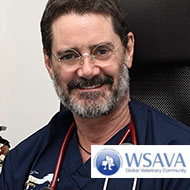
WSAVA expresses concern that practices may be forced to cease operating
The WSAVA is calling on the government to recognise all veterinary hospitals and clinics as 'essential businesses' and can continue caring for patients during the COVID-19 emergency.
In light of government measures that may involve the closure of non-essential businesses, the WSAVA has expressed concern that veterinary hospitals and clinics may also be forced to cease operating.
The organisation states that such a move would jeopardise the welfare of countless animals, many of which provide essential companionship to the elderly, vulnerable and anyone else who may need to self-isolate.
“We fully support the risk mitigation measures being introduced as part of the global fight against COVID-19, but we are concerned at reports from some of our members that they have been asked to close their doors,” explained WSAVA President Dr Shane Ryan.
“Veterinarians and their teams deliver essential medical care for animals, ensure animal health and welfare, and support the human/companion animal bond by protecting these deep and important relationships."
He added: “As part of our continuing responsibility to care for our animal patients and their owners, we call on governments to recognize all veterinary hospitals and clinics as essential businesses in any situation in which non-essential businesses are asked to close for COVID-19 risk mitigation.”



 The latest
The latest